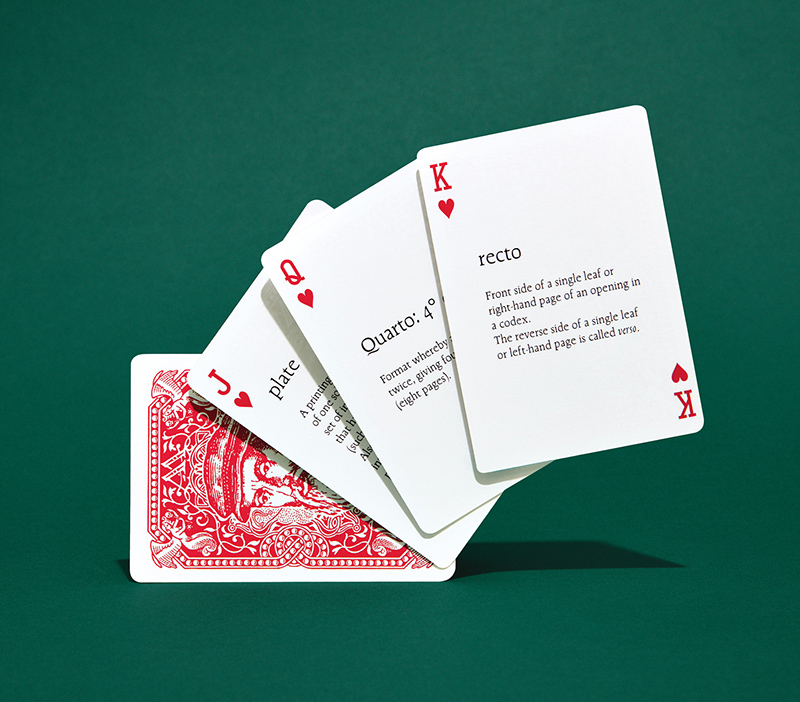At times, Prof. Paolo Granata encourages his students to play poker (and other card games) – in class. There’s no money at stake, but he does hope they’ll learn a few things.
Granata, a professor in the Book and Media Studies program, has designed a deck of playing cards to help students remember unique terms from print culture and the history of books. Inspired by both traditional flash cards and a deck of aphorisms created by media theorist Marshall McLuhan, the cards feature a picture of Johannes Gutenberg, the inventor of mechanical movable type, on one side and a definition on the reverse.
“Marginalia” appears on the 10 of diamonds, for example, and “codex” on the queen of spades. Gutenberg himself is the joker. Granata gets students to correctly explain the words on the cards as they are played. This kind of experiential learning is a great way to help students grasp and retain knowledge, he says; the unusual experience of playing cards in class sticks in the memory. “I strongly believe in the power of playfulness to inspire creativity and imagination,” he says.
Recent Posts
People Worry That AI Will Replace Workers. But It Could Make Some More Productive
These scholars say artificial intelligence could help reduce income inequality
A Sentinel for Global Health
AI is promising a better – and faster – way to monitor the world for emerging medical threats
The Age of Deception
AI is generating a disinformation arms race. The window to stop it may be closing






One Response to “ All In on Gutenberg ”
Great article!